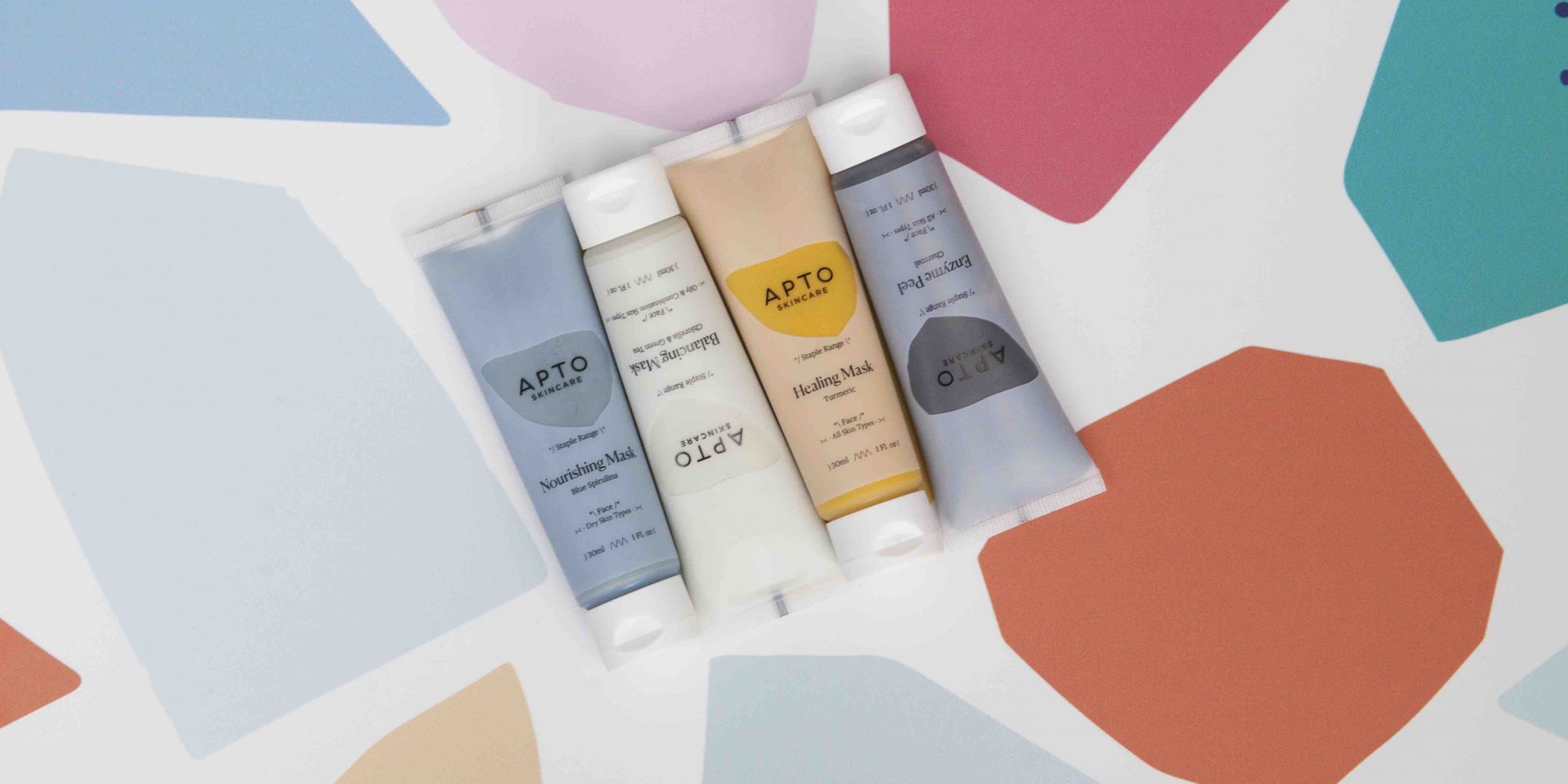
Built Around Affordability, Seasonality And Star Ingredients, Apto Bursts Onto The Beauty Scene At Urban Outfitters
Apto is combining the concepts of clean beauty and fast fashion with ingredient-driven staple products and seasonal collaborations to intrigue millennial shoppers bombarded by skincare choices.
Recently landing at Urban Outfitters, the brand makes a statement with bright, affordable products starting with three $16 face masks and three $6 face mists spotlighting chlorella, green tea, turmeric and spirulina. Apto’s assortment will expand soon to include a $20 Equalizing Mask containing apple cider vinegar and parsley and, in the fall, it’s partnering with two artists to design the packaging for a mist, mask and toner centered on pomegranate.
“We want to make clean, nontoxic skincare accessible. We’re seeing a lot of brands doing the natural, organic, plant-based approach, but some of them are charging $50 for a cleanser. We want to reach a millennial generation that’s focused on ingredients, but make sure they can buy the products,” says Marta Cros, founder of Apto as well as at-home spa treatment specialist The Ritualist. “That’s why it was such a good fit for us to launch with Urban Outfitters. The girl that shops there is the girl we’re trying to target.”
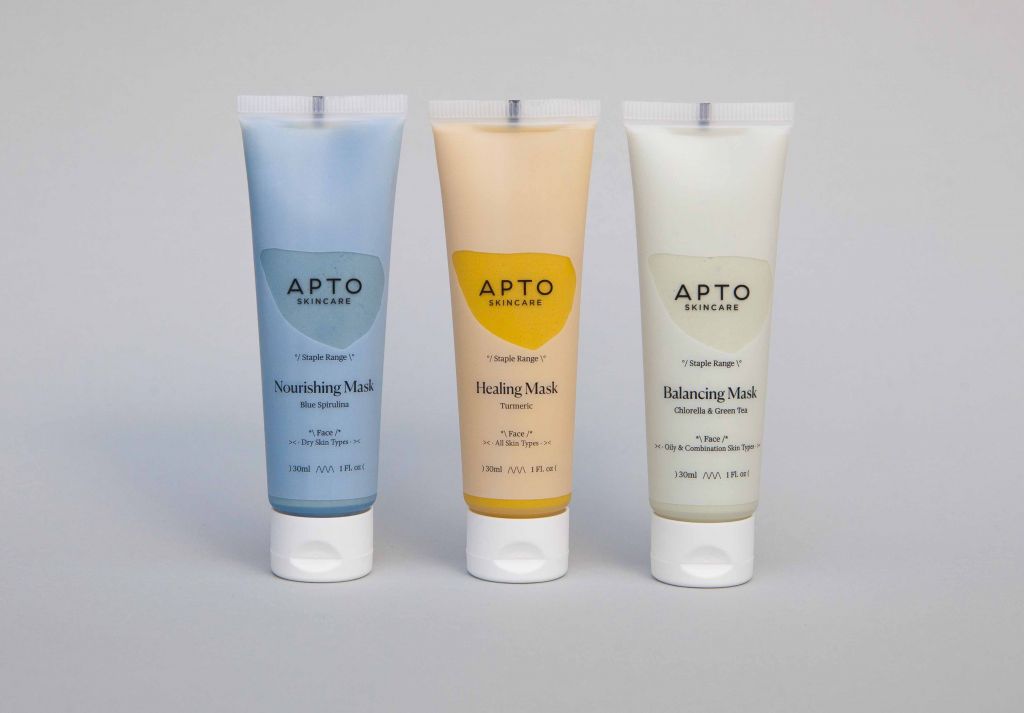
Apto’s affordability and seasonality are made possible by its connection with Christine Valmy Inc., owner of aesthetics schools and a skincare laboratory. In June, Christine Valmy merged with The Ritualist and Apto. Prior to the merger, it had been supplying The Ritualist aestheticians and producing Apto products, practices that persist post-merger.
“They have the ability to develop amazing products, and my background is in marketing, so it just made sense to join forces and make use of everybody’s strengths to realize Apto’s potential,” says Cros. Speaking of Marina Valmy de Haydu, Christine Valmy’s daughter and the leader of the company bearing her mother’s name, she adds, “She has been so successful, but she really enjoys mentoring and has really helped me from the start. She’s offered me advice and been there since day one. Our partnership came about very naturally.”
“We want to make clean, nontoxic skincare accessible. We’re seeing a lot of brands doing the natural, organic, plant-based approach, but some of them are charging $50 for a cleanser. We want to reach a millennial generation that’s focused on ingredients, but make sure they can buy the products.”
Apto began as an opportunistic offshoot of The Ritualist in 2016. The Ritualist had been relying on products from various skincare brands, but Cros hadn’t found a brand to address all its needs. She conceived Apto to do so, but not in a market-ready manner. She used stock packaging and didn’t flesh out the branding. Even without the bells and whistles, Apto took off, and Cros became convinced it could live outside of The Ritualist.
“It was crappy. We weren’t thinking that much about how it looked because it was just a line for The Ritualist,” she laughs, continuing, “Usually, people have a very specific vision, and a plan for launching and going forward. For us, we had products and we thought, ‘Let’s give this brand a soul.’”
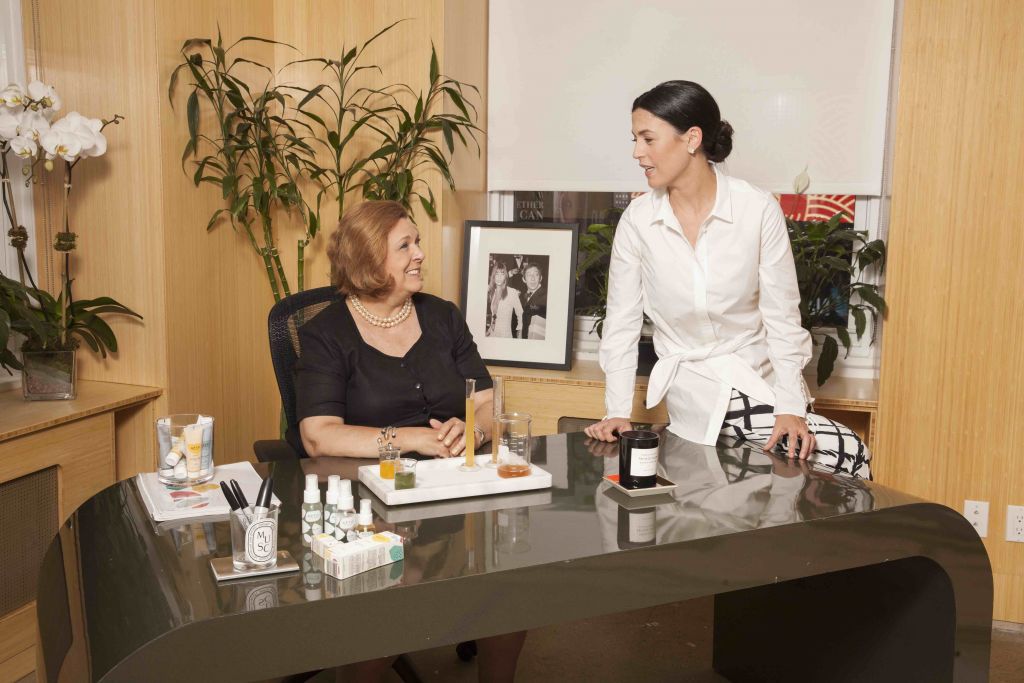
The soul of Apto arose from its clean beauty orientation – it’s vegan, and avoids synthetic chemicals, gluten and artificial colors – and Cros’s and Valmy de Haydu’s shared fascination with seasonality. Cros was curious why the fashion industry, which she was employed by LVMH Moët Hennessy Louis Vuitton-owned Loewe prior to The Ritualist, was heavily dependent on seasonal newness to stoke excitement while the skincare segment wasn’t as in flux, and de Haydu was interested in incorporating plant ingredients harvested seasonally into skincare products.
In-and-out seasonal products carry the risk of leaving a brand stuck with inventory it can’t move. Apto’s exposure to that risk is reduced because it produces small batches of products and produces them quickly. Cros estimates a typical skincare product takes about nine months to go from idea to execution while Apto shortens that timeline to six to eight weeks. As a result, not only does the brand put out capsule seasonal collections, but it can easily release limited-edition products for specific retailers.
“We believe that there are a few retailers who know how to do their jobs very well, and we want to partner with them because we think that’s the best way to get our products to the clients we want. We want to keep the number of partners that we have small, but go deep with each partner.”
“If we have an order for 1,500 units, we can produce that upon the PO [purchase order] to make sure the products are super fresh when they reach our retail partners, and that’s what makes this business work,” says Cros. “When you work with a third-party lab, the minimum order quantity might be 5,000 units and the big ones could be 10,000 or more. When you’re starting as a smaller brand, it makes this process difficult, and that’s one of the advantages we have. We can make 500 units of a product and, if sells super well for two weeks, we can make another batch.”
Colorful Henri Matisse-inspired shapes on Apto’s packaging hint at the brand’s spontaneity and roots in nature. “We’re not looking to be overly perfect or symmetrical. In nature, you won’t find perfect things,” says Cros, noting the word “apto” means suitable in Spanish. For the seasonal products, artists are instructed to create packaging designs speaking to how they feel about a season.
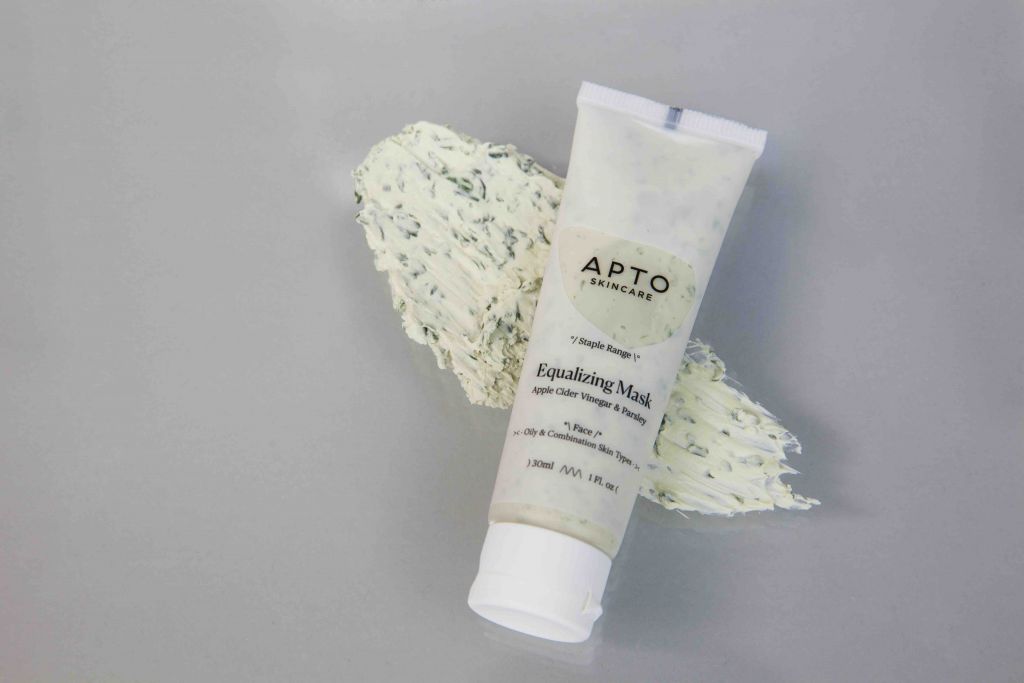
During an age obsessed with direct-to-consumer business models, Apto is pursuing the opposite tack. “Of course, we have our own website, but, frankly, that’s not the focus. We believe that there are a few retailers who know how to do their jobs very well, and we want to partner with them because we think that’s the best way to get our products to the clients we want,” says Cros. “We want to keep the number of partners that we have small, but go deep with each partner.” Five Aptos products will be exclusive to Urban Outfitters, where the brand is available in 43 doors, through the rest of 2018.
Apto’s close relationship with Urban Outfitters has led to the brand generating products tailored to its audience. Cros explains Apto proposed a cleanser, but the retailer encouraged it to introduce mists because they’re on the upswing and don’t generally require customers switching from products they’re loyal to. In total this year, Apto expects to roll out a dozen products and four of them will be seasonal.
“So far, Urban Outfitters has been an amazing partner in the sense that they really understand what we’re trying to do, and they provide feedback about what the client we want wants. They’ve offered a lot of guidance,” says Cros. “For us, it’s really important to have the products in stores, not just online. You can discover a brand through social media, but it really makes a difference to touch its products in a store.”


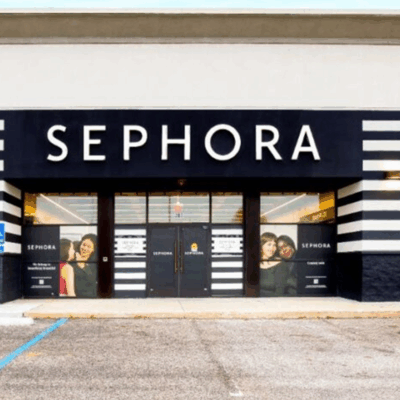


Leave a Reply
You must be logged in to post a comment.